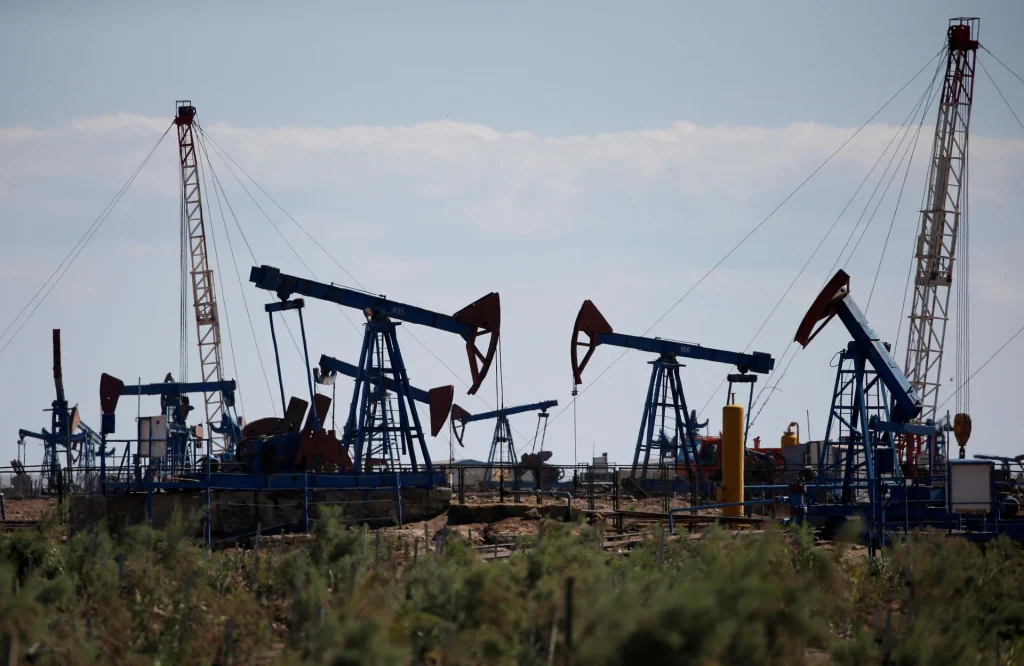[NEW YORK] Oil prices rose more than 4 per cent on Wednesday, to their highest in more than two months, after sources said the US was preparing to evacuate its Iraqi embassy due to heightened security concerns in the Middle East.
Brent crude futures settled US$2.90, or 4.34 per cent, higher to US$69.77 a barrel. US West Texas Intermediate crude gained US$3.17, or 4.88 per cent, to US$68.15. Both Brent and WTI reached their highest since early April.
Surprised traders bought crude futures on reports the US was preparing to evacuate its embassy in Iraq, Opec’s No. 2 crude producer after Saudi Arabia. A US official said military dependents could also leave Bahrain.
“The market wasn’t expecting this big geopolitical risk,” said Phil Flynn, analyst at Price Futures Group.
Earlier, Iran’s Minister of Defense Aziz Nasirzadeh said Tehran will strike US bases in the region if nuclear talks fail and conflict arises with Washington.
Trump said he was less confident that Iran would agree to stop uranium enrichment in a nuclear deal with Washington, according to an interview released on Wednesday.
BT in your inbox

Start and end each day with the latest news stories and analyses delivered straight to your inbox.
Ongoing tension with Iran means its oil supplies are likely to remain curtailed by sanctions.
Supplies will still increase, as Opec+ plans to boost oil production by 411,000 barrels per day in July as it looks to unwind production cuts for a fourth straight month.
“Greater oil demand within Opec+ economies – most notably Saudi Arabia – could offset additional supply from the group over the coming months and support oil prices,” said Capital Economics’ analyst Hamad Hussain in a note.
Also keeping prices elevated was news of a trade deal between the US and China, which could boost energy demand in the world’s two biggest economies.
Trump said Beijing would supply magnets and rare earth minerals and the US will allow Chinese students in its colleges and universities. Trump added the deal is subject to final approval by him and President Xi Jinping.
The trade-related downside risk in oil has been temporarily removed, although the market reaction has been tepid as it is not clear how economic growth and global oil demand will be affected, PVM analyst Tamas Varga said.
In the US, crude inventories fell by 3.6 million barrels to 432.4 million barrels last week, the Energy Information Administration said. Analysts polled by Reuters had expected a draw of 2 million barrels.
“It’s a bullish report,” said Bob Yawger, director of energy futures at Mizuho, adding that the demand for motor gasoline began to strengthen.
Product supplied for motor petrol, a proxy for demand, rose by about 907,000 barrels per day last week, to 9.17 million bpd.
US consumer prices increased only marginally in May, deepening the conviction in financial markets that the Federal Reserve will start cutting interest rates by September. Lower interest rates can spur economic growth and demand for oil. REUTERS


